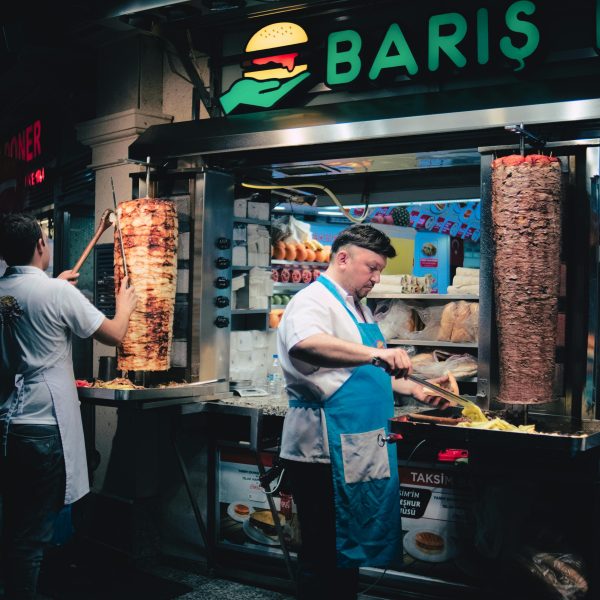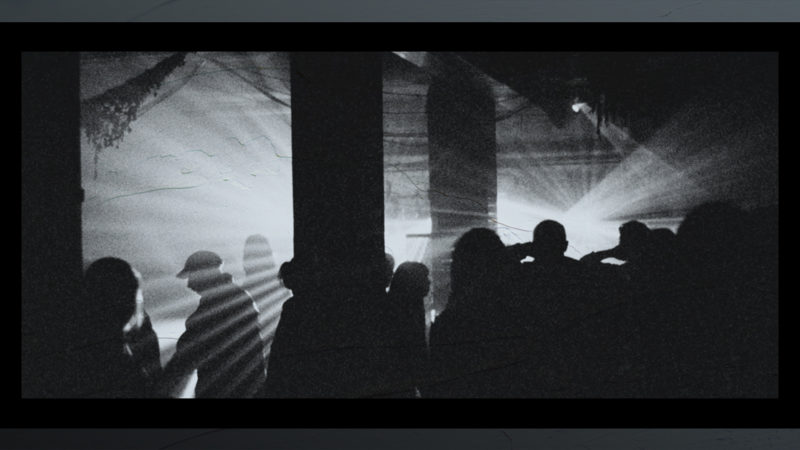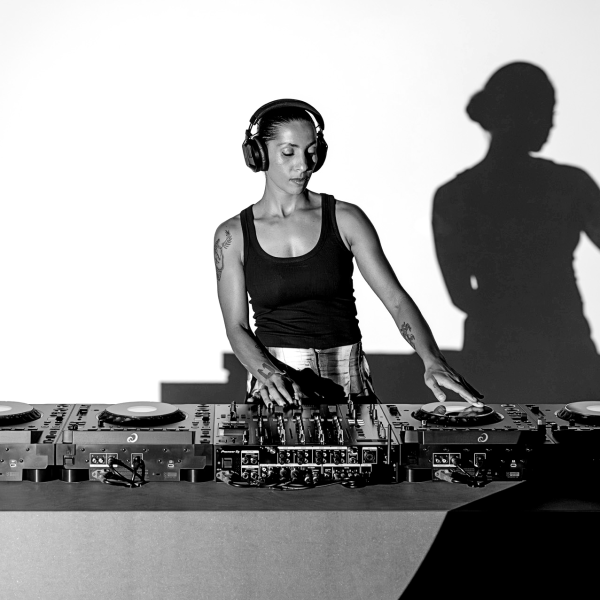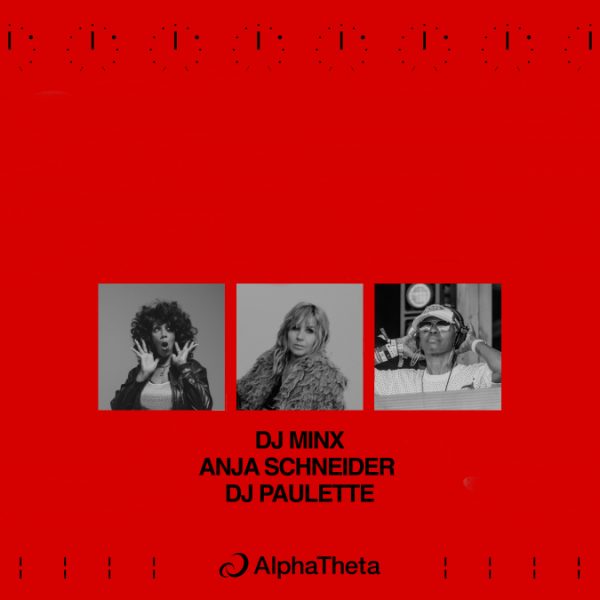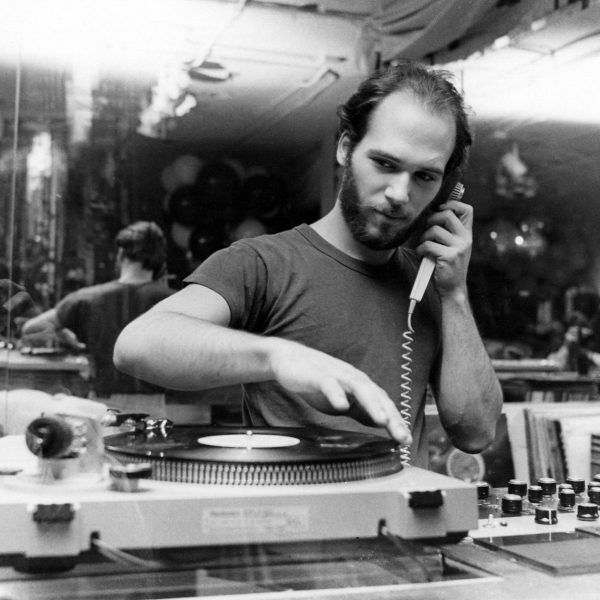I grew up in a place called Knowle West which, according to Tony Blair, is the worst council estate in Europe. When I read that I was like, ‘Cheers mate!’ It’s predominantly white and there were around 11 Black families in the area. I was there from the early ‘70s to the late ‘80s and I experienced all the imaginable things that a first generation Black British man would go through in a predominantly white working-class area. It was very colourful, but I wouldn’t trade it for anything else.
At first music was a form of pleasure for the house. My mum listened to it, my dad; my brother was introducing me to new music. Then it became a route out of oppression, something that I could actually do and be good at. Not just to make money and be another number.
The moment I saw Wild Style [the ‘80s hip-hop movie by Charlie Ahearn] it was a lights-on moment. Before that came along I was a mod, and what I loved about that culture was the multicultural aspect. But mods just looked cool, they didn’t really do anything. When I saw Wild Style, it was a lifestyle. They’re breakdancing, they’ve got clothes, they’ve got an ethic, there’s organisation, a philosophy, spray painting, rapping, DJing—for a 14-year-old it’s like, ‘What the hell?!’ Immediately I felt like I could be a part of that culture. Not only that, but I felt like I could excel at it.
I was watching kids on the streets of America who looked like me, who didn’t have much more than me, but they’d made something. My mantra is, Wild Style is the blueprint, the Bible, but always make something from nothing. The film was a blueprint for how you build culture, they’re all the pieces: dancing, music, communicating with authenticity, respect, honour, codes of conduct, you learn your art, practice and practice and practice.
You had this high energy within the youth in Bristol, but they didn’t know what to do with it. You’d walk around and there’d just be gangs of us hanging around not knowing what to do. The energy wasn’t being utilised by society. When we started to funnel that back into ourselves and really ignite it, it became apparent that everybody had skill sets. We were all brought together, from different backgrounds, by this culture, music culture. People were starting radio stations, magazines, nightclubs, record labels. It felt important that we were all doing it together. I don’t think anyone looked around and thought, ‘Oh, there’s not enough white people here,’ or ‘We need more Black people for this,’ it was just obvious that it was cool to be around good people.
It was nothing to do with what colour our skin was, it was the same thing when we went to these raves. All of the barriers dissolved because you were in a field dancing and you’d see the commonalities. It was like another world that we’d visit every week from Friday to Sunday. These blueprints are just ideas of what societies can look like and what people can do together.
The unexpected consequences of colonialism brought so much diversity back to England. My dad was a hardcore Jamaican. He came here and all of a sudden he’s having to mix with white people, Indians, Chinese, maybe some eastern Europeans as well—you have no choice, you’ve got to get on. They’re having to learn what it’s like, which can be hard. But I’m growing up with the same ethnic backgrounds in my schools so it’s not that difficult because, at the time, it’s not that different. We all speak English, we’re all watching the same TV channels, so those barriers aren’t there for us. It’s just kids with ideas and excitement and passion and wonder and curiosity.
The impacts of structural racism are not as present on the ground. We’ve always made music, we’re always going to be creative. Where it’s really apparent is on the executive level, where certain decisions are made, that could be made by people of colour, and culture gets reappropriated by other races that don’t have the historical take on it, and abuse it because of its perceived value. White women can get bum implants, lip enhancements and darker skin and be considered more desirable. Our music can be emulated by anybody, now it’s not Black music it’s urban. These little things take away our impact and make it look like we’re not the purveyors of the culture.
A question that tacks on to all of this is, where is the Black tech? Where are the Black inventors that are going to be levelling the playing field? Although there’s the systemic problem in the music industry, technology freed people. Think about how we were liberated just by having an Atari 1040—that changed my life.
It’s up to us to stop looking around for people to stop being racist, it’s not in their self interest. Human beings put their self interests first; when push comes to shove I’m putting myself and my family first. What is their incentive to stop being racist? To stop giving themselves the best jobs, the best pay? There’s no incentive to do that.
Until there’s a system that is obviously intuitively better than the one we’ve got, I don’t consider these minor changes to be progress. I don’t think change can come from people who aren’t invested. Anything that got changed in the last 1000 years happened through people taking it, not requesting it. That’s not how animal kingdom, human affairs work. It doesn’t work through voting or asking questions or polite requests.
Photo credit: James Hacker
